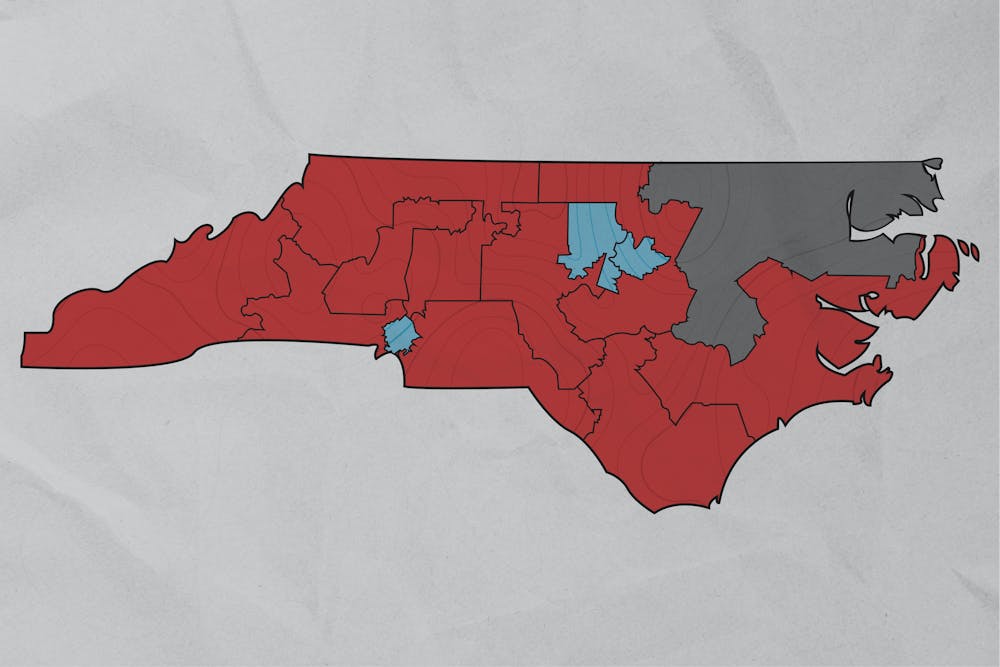The Republican-controlled N.C. General Assembly passed new congressional and state legislative maps for the 2024 election on Oct. 25.
Three months later, on Jan. 25, the North Carolina Democratic congressional delegation proposed sweeping reforms for the map-making process at the federal level.
The proposed bill, H.R. 7095, is titled the Redistricting Transparency and Accountability Act. It would require that legislators create a website showing the policies used in creating maps. The website would also show any documents submitted by any person or group, demographic and election data and video of any relevant meetings.
The bill requires at least three public hearings to allow for public comment on the proposed plans and for all information about the plans to be posted on the website at least 10 days before a final vote.
Michael Bitzer, the chair of Catawba College's politics department, said a party’s view on redistricting reform seems to change depending on who is in power.
From 1999 to 2010, Democrats controlled both chambers of the legislature and held the governorship. Bitzer said, during that period, Republicans were very vocal about needing independent redistricting.
Both N.C. House Speaker Tim Moore (R-Cleveland, Rutherford) and Senate President Pro Tempore Phil Berger (R-Guilford, Rockingham) sponsored a bill in 2009 to establish an independent redistricting commission.
“Once they came to power in 2011, the shoe was on the other foot, and you heard very little about independent redistricting from Republicans,” he said. “And then you saw Democrats pick up that issue.”
The new state senate and congressional maps were graded 'F' by the Princeton Gerrymandering Project, which provides nonpartisan analysis of district maps across the country. The reason cited for the grades is "significant Republican advantage."




